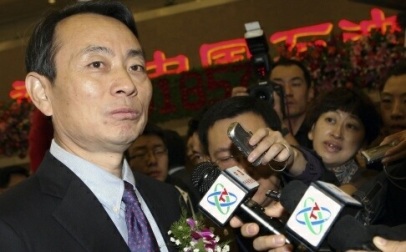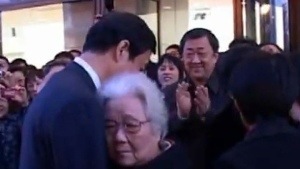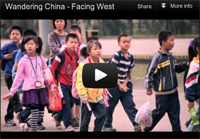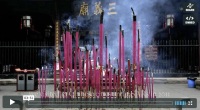As a student of the media, it is hard to ascertain intention from simply reading off representative lines of text in articles. Unless one has a direct face-to-face interview with the author and amongst other things, a complete understanding of the editorial process, political economy of the transnational media institution involved, it’s at best, an informed guess. Interpreted by Chinese communities I am in touch with as part of a continuum of China gesturing in a time of Sino-US leadership transition, the consensus seems to be one of 顧全大局 – keep the eye focused on the big picture, general situation and present conditions.
New York Times: From David Barboza, correspondent for the NY Times based in Shanghai since 2004. Fact illuminating or complicating the Chinese fog of war ahead of the leadership change scheduled to take place on Nov 8 at the 18th National Congress? I don’t think the Chinese people are overly concerned for the wider Chinese socio-economic headspace has other priorities, but for a non-Chinese audience this may take some deliberating.
Will this diminish Wen’s residual power as the Chinese central authority reconfigures itself? Also – this comes at a time when questions are being asked if Hu Jintao will step down from his chairmanship of the Central Military Commission (see Hu Jintao likely to quit as head of China’s military: analysts by the Want China Times, October 15, 2012)
The article scarcely reveals the methods behind their investigations, based on ‘[a] review of corporate and regulatory records‘. Incidentally, this story is repeated all over Australia’s state broadsheets via the agencies and was trending on Twitter when news broke. Below is what I found on my feed.

- Screen capture from my Twitter Feed. Hashtag #Wenjiabao is trending at the moment. David Barboza who wrote the article was ‘credited’ by FT’s David Pilling as bringing the NYTimes website down in China.
In response, China’s Great Firewall was cranked up with a retaliatory posture, with its 500m plus internet users now unable to search for keywords relating to Wen and NYT (save for those who utilise proxy servers to ‘tunnel’ through the wall – China condemns NY Times Wen Jiabao wealth story ‘smear’ (BBC, October 26, 2012)
On China’s Twitter-like weibo platforms, keywords such as Wen Jiabao and the New York Times are blocked. Mr Wen’s name, like most other Chinese leaders, has always been a screened keyword.
Some netizens did manage to post the article despite heavy and rapid censorship. A Sina Weibo user tweeted about the article from Kawagoe city in Japan, but his post was removed after 11 minutes.
Here’s an interesting comment on the NY Times article which piqued my interest. Fair comment, or victim of information intertextuality and access gone wild?
It looks like ousted Chongqing leader Bo Xilai has eventually got to fight back. Revelations about Wen Jiabao family’s hidden fortune have been timed to coincide with expulsion of Bo Xilai from top legislature that stripped him of his MP immunity, which means he’s now facing a biased trial and harsh imprisonment, if not worse. With the revelations Bo Xilai and his supporters landed a devastating blow straight at the top of China political establishment. Adding to the drama the long awaited change in China’s secretive and closed leadership is looming only few days away. Wondering whether this is just the first and last retaliatory blow from someone who has given up all hopes and deems to be doomed. I would bet that Mr. Bo Xilai keeps ready some more bunker-busting ammos in store and signaled loud an clear that he’s now ready to use all of them in his last-stance fight. If my bet is right things in China in the very near future will get quite interesting. Comment on article by Mario from Italy
If found true however, will this fall under the list 52 “unacceptable practices” (不准 – 中国共产党党员领导干部廉洁从政若干准则 in full)? Introduced in 2010 to fight widespread corruption after an initial trial that started in 1997, the code of ethics has a special emphasis on indirect corruption – when officials abuse power to benefit not themselves directly, but their relatives. The code explicitly names ‘spouses, children, in-laws and other relatives’ as unacceptable beneficiaries depending on transaction.
According to a Shanghai cable in 2007 that Wikileaks got its hands onto – “Wen is disgusted with his family’s activities, but is either unable or unwilling to curtail them.” Swimming in a sea of driftwood collateral corruption, if you will.
For a wider perspective – check out A rising pitch against corruption [Straits Times, March 8, 2010] – that examined China’s ever-lingering problem – corruption. The issue has brought down many Chinese institutions in the past – 3% of the GDP being siphoned off sounds like no small number. Back in 2010, Wen Jiabao spoke at the National People’s Congress, stressing that failure to ‘check corruption will have a ‘direct bearing’ on the Chinese Communist Party’s (CCP) grip on power.’ This article then argued that it is not China’s modern capitalist leanings that have fueled today’s problems. Rather, it feels that it was Mao who “created a privilege-based political system that lies at the heart of China’s contemporary corruption woes.” Beyond that the fine line between guanxi and gifting as a significant cultural paradigm Chinese, diasporic or not, subscribe to makes the western interpretation of corruption hard to impose.
And here’s a two-year rewind with Inflation, corruption could hurt China: Wen (The Age/AFP, October 3, 2012). In an interview with Fareed Zakaria on GPS, he said, “I do have worry for the management of inflation expectations in China… And that is something that I have been trying very hard to manage appropriately and well, because I believe corruption and inflation will have an adverse impact on stability of power in our country.”
– – –
Billions in Hidden Riches for Family of Chinese Leader
by David Barboza
Source – New York Times, published October 25, 2012

Many relatives of Mr. Wen became wealthy during his leadership. Source – New York Times, 2012
BEIJING — The mother of China’s prime minister was a schoolteacher in northern China. His father was ordered to tend pigs in one of Mao’s political campaigns. And during childhood, “my family was extremely poor,” the prime minister, Wen Jiabao, said in a speech last year.
But now 90, the prime minister’s mother, Yang Zhiyun, not only left poverty behind — she became outright rich, at least on paper, according to corporate and regulatory records. Just one investment in her name, in a large Chinese financial services company, had a value of $120 million five years ago, the records show.
The details of how Ms. Yang, a widow, accumulated such wealth are not known, or even if she was aware of the holdings in her name. But it happened after her son was elevated to China’s ruling elite, first in 1998 as vice prime minister and then five years later as prime minister. Read the rest of this entry »
Filed under: 52 Unacceptable Practices, Beijing Consensus, Bo Xilai, Charm Offensive, Chinese Model, Communications, Corruption, Culture, Domestic Growth, Economics, Finance, Government & Policy, Great Firewall, Influence, Internet, Law, Maoism, Media, New York Times, Peaceful Development, Politics, Poverty, Public Diplomacy, Reform, Social, Soft Power, Strategy, Tao Guang Yang Hui (韬光养晦), The Chinese Identity, The construction of Chinese and Non-Chinese identities, U.S., Bo Xilai, China's Rise, Corruption, Crime, culture, Democracy, Economics, Media, Politics, Public Diplomacy, U.S.
















The Sharing Circle